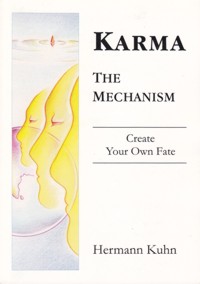
Iryabhasaisanadananikshepotsargah samitayah (5)
To be aware of our personal behavior (samiti) means to perform the events of daily life - walking, speaking, eating, handling objects and depositing waste - in a conscious way. (5)
While the previous sutra encompasses all our activities, this sutra directs our focus specifically to the objects and events of our daily life.
We usually consider many everyday 'routine' events as trivial and perform them rather mechanically and perfunctorily without paying much attention. Yet we also know that this 'routine-work' takes up a significant part of our time. If we rank this time as 'second-rate', we unnecessarily degrade a significant part of our life.
Every thoughtless action carries the danger of binding karma, even though we might not be aware of it. Here an example: We usually want to finish routine chores in the shortest possible time. Everything that gets in our way may easily anger or irritate us: A delay on our way to work, an imprecise answer (possibly triggered by an equally vague question of ours), a breakfast that falls short of our expectations, articles of daily use we cannot find at their correct places, an occupied toilet etc. - every one of these components of daily life may easily cause us to bind (new) negative karma if we react with negative emotions.
The main danger is the carelessness or inattention with which we handle this 'second-class' time. Since we regard recurring routine-work as unimportant, we usually also think that our reactions during this time will be similarly irrelevant and not be of much consequence. Yet whatever karma we bind during such 'irrelevant' periods - e.g. because of an angry, careless response - has exactly the same effect as karma bound in 'first-class' time. Our misconception that 'routine-time' should count less than 'first-class' time does not influence the karmic processes in the least - none of their karmic effects will be milder because of this attitude.
If we perform routine actions with the same precision and attention we usually devote to 'more important' events, we reduce the binding of new karmic matter significantly. Even if this additional alertness initially feels uncomfortable or even ridiculous, it will - after only a short time - produce an increased liveliness in all areas of life. Once we experience this, any previous distinction between first-class and second-class time becomes entirely irrelevant.
 Hermann Kuhn
Hermann Kuhn
